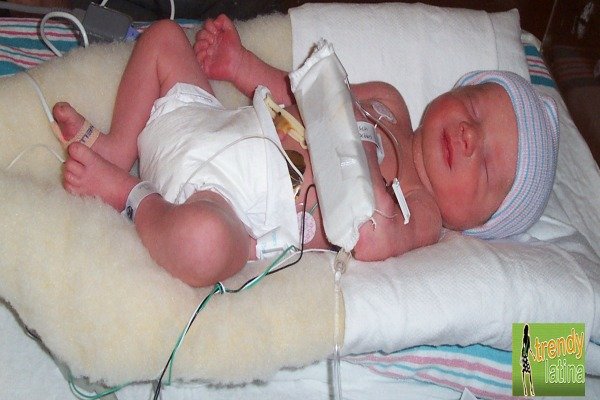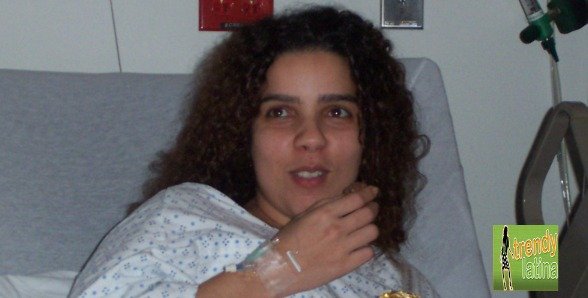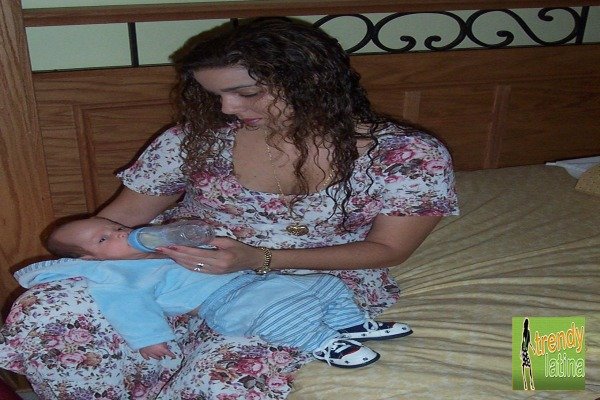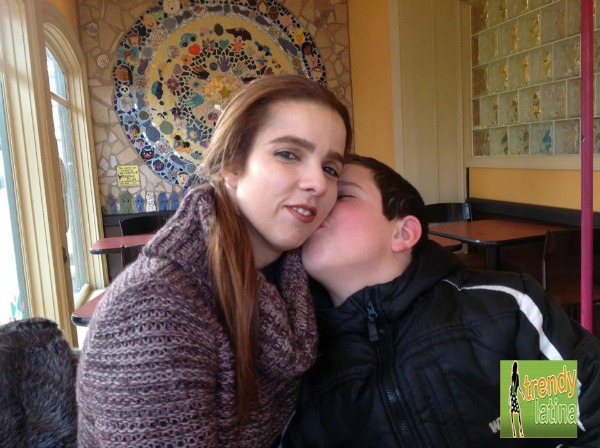![]()
When I was 6 months pregnant, my doctor, the head of gynecology of U-PENN, told me I had a rare condition, Placenta Previa and Acreta together; which brought me to the hospital almost 2 months before my due date, left me in the hospital driving all the nurses crazy for 21 days until they decided to schedule my C-section! You know me….
Pregnancy in itself can be such a terrifying journey for many people, especially when you consider the pain and discomfort involved. Consequently, if you’re a couple that is still deciding what they want to do about their unplanned situation, you might find several pregnancy consultancies (visit yourlovingchoices.org for instance) that would be able to help you pick the right path for you. However, keeping my baby was never in question for me; but the fact that my delivery was supposed to have these complications that I had no idea about, shook my nerves a little.
Turns out I didn’t have much to worry about, since during the birth there were 25 doctors in one delivery room (yes, my husband was in there….) my case went into the University books and my doctor, who had not been in surgery for 10 years, did my C-section! I guess I felt special and I felt blessed because I was in the care of the best hands in the East Coast!
My son was born in June instead of August, a healthy baby boy! But he needed to stay in the ICU until he was ready to come home!
Even though he was born healthy with no complications, the signs of a preemie were obvious in late walk, vision and other small issues. But out of all my concerns, I really had a concern for his lungs and kept my eyes open to colds and breathing issues. At that point in time I was not aware of the risk of RSV, despite being so common, many parents aren’t aware of RSV; in fact, one-third of mothers have never heard of the virus; main reason why I am so happy to have been chosen to bring awareness to it:
RSV: A Risk to Preemies
Respiratory syncytial virus (RSV) is a common seasonal virus, contracted by nearly all children by the age of two, and typically causes mild to moderate cold-like symptoms in healthy, full-term babies. Preterm infants, however, are born with undeveloped lungs and immature immune systems that put them at heightened risk. As time goes on this could develop other issues related to their lungs like asthma, so it is important to have a variety of tests done to help them be treated correctly. Conducting lung testing as well as something like feno asthma testing can give them the support they need as they deal with their breathing problems.
- RSV infection is more likely to root in premature lungs
- Preterm babies carry fewer virus-fighting antibodies
• Learn the Symptoms of Severe RSV Disease: Contact your child’s pediatrician immediately if your child exhibits one or more of the following:
- Persistent coughing or wheezing
- Bluish color around the mouth or fingernails
- Rapid, difficult, or gasping breaths
- Fever [especially if it is over 100.4 F (rectal) in infants under 3 months of age]
Key RSV Facts:
RSV occurs in epidemics each year, typically from November through March, though it can vary by geography and year-to-year
RSV disease is the leading cause of hospitalization for babies during their first year of life in the United States and is responsible for one of every 13 pediatrician visits and one of every 38 trips to the ER in children under the age of five.
How Can I Help Protect My Baby From RSV?
RSV is very contagious and can be spread easily through touching, sneezing and coughing. Additionally, the virus can live on the skin and surfaces for hours. There is no treatment for RSV disease once it’s contracted, so prevention is critical.
To help minimize the spread of RSV disease, all parents should:
Wash their hands and ask others to do the same
Keep toys, clothes, blanket and sheets clean
Avoid crowds and other young children during RSV season
Never let anyone smoke around your baby
Steer clear of people who are sick or who have recently been sick
World Prematurity Day is November 17th: Learn the Risks Associated with Preterm Birth
Speak to your child’s pediatrician to determine if your baby is at high risk for RSV disease, and if so, what additional steps may be recommended. For more information about RSV and prevention, visit www.RSVprotection.com. Please also use the hash tag #RSVawareness when tweeting.
Today he is a 10 year old healthy big boy. So with thanksgiving, I wanted to share I am truly blessed to have been selected to be a part of this great campaign!



















Claudia, wow, I didn’t know your story! My daughter actually was born with a vasa previa, which is when her umbilical cord grew over my cervix. Unlike yours, they didn’t catch it before labor and it almost killed her because it burst. I’m SO thankful they diagnosed yours before labor and were able to prevent serious issues, though I know the NICU stay must have been difficult. Thanks for spreading the word about RSV. Through my work with Team Abby I’ve met a lot of preemie families and RSV is terrifying!
Thank you so much for sharing, Carrie!
I was a preemie, way back. In fact, all my mom’s kids were. There but for the grace of God…I didn’t even know about this condition. Thank you for bringing attention to it.
Thank you, for sharing, Carol!
I was always a week late with my babies and even though I whined a lot at the end I am so grateful bc I know delivering early can be scary. Thanks for sharing this useful information… Your son is a lucky boy to have you as a mom!
Great information! I love the tips for RSV – good, clean common sense prevention. I’m so glad you and your son came through and this had an awesome ending.
Thank you, Gina!
Such an important cause to bring into focus! My older daughter picked up RSV while in a home daycare she attended. She was almost 3 and she was sick for months trying to recover. To this day, her respiratory system is still the weakest link in her body. At the time,I was pregnant with my second, and (through testing) we already knew had a heart condition. At the time, we didn’t know I would be induced almost a month early to save her life. We knew we couldn’t risk her being exposed to anything and made the decision to hire a nanny after I returned to work (which was, thankfully, in my home.) Thankfully, she is a gorgeous 16 year old young woman today.
Such a great testimony, Mary, please share so we can bring awareness to other parents, who might not have access to good health care nor be aware of the risks!
It’s hard to believe that Lucas was a preemie! Great job bringing awareness to RSV.
I know, Claire, thank you!
Seeing your son now, it is hard to believe he was a premie! He is so tall. And you look the same as you did 10 years ago which just isn’t fair.
Thanks for helping to bring awareness to RSV. Remember, the most important thing any of us can do during cold and flu season is wash our hands frequently! And please, if you are sick, just stay home.
Thank you so much, Beth! 🙂
The last photo is so lovely.
I had a preemie too. It’s a very stressful time. Glad to know all is well with you and your “baby” despite a rough start. 🙂
Thank you, Jo-Lynne!
Incredibly helpful and useful information. It looks like your preemie grew into a good looking young man, I am sure in no small part as a result of your care and love.
Thank you, Peggy!
I love seeing how he has grown : ). Teeny tiny baby to boy that is full of energy. Great post.
Thank you!